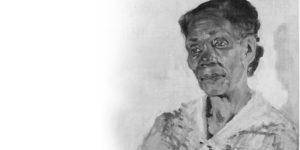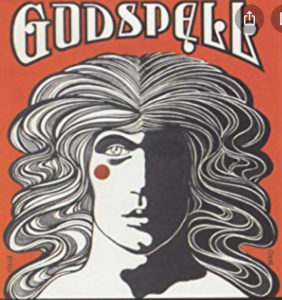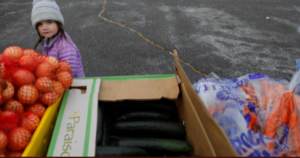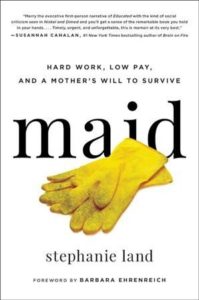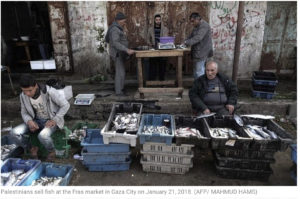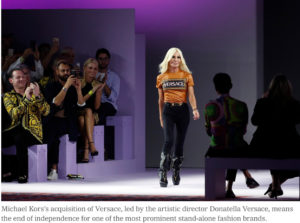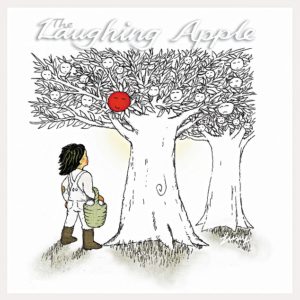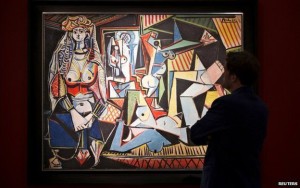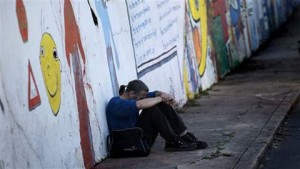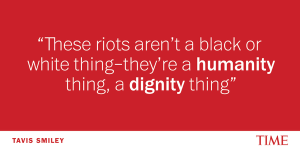Poverty
Simplicity. And capitalism.
October 9, 2020From Fr Richard Rohr, Center for Action & Contemplation
When we agree to live simply, we put ourselves outside of others’ ability to buy us off, reward us falsely, or control us by money, status, salary, punishment, and loss or gain of anything. This is the most *radical level of freedom, but, of course, it is not easy to come by. It might be called foundational restorative justice, or primal solidarity with the mass of humanity and the earth. Francis and Clare created a life in which they had little to lose, no desire for gain, no loans or debts to pay off, and no luxuries that they needed or wanted.
When we agree to live simply, we have little to protect and no desire for acquisition, even for acquisition of any “moral capital.” When we imagine that we are better, holier, higher, more important to God than others, it is a very short step to “justified” arrogance or violence toward those others. It is almost inevitable, in fact, and we are witnessing today how it manifests itself at every level of our societies. If we could eliminate such manufactured and desired superiority, religion might finally become nonviolent in thought, word, and deed.
When we agree to live simply, we no longer consider immigrants, refugees, people in poverty, or anyone else on the margins of society as a threat. When we choose to relinquish our privileges, whatever they are, we have freely and consciously chosen to become “visitors and pilgrims” in this world, as St. Francis puts it. A simple lifestyle is quite simply an act of solidarity with the way most people have had to live since the beginnings of humanity.
When we agree to live simply, we have time for spiritual and corporal works of mercy, like prayer, service, and justice work, because we have renegotiated in our minds and hearts our understanding of time and its purposes. Time is not money anymore, despite the common aphorism! Time is life itself and we want to give our lives away freely.
When we agree to live simply, we have little energy to defend or protect our group, our ethnicity, our country, our money, and our religion. Our circle is no longer defined by these external and accidental qualities, because we now find the joy and beauty of the real essentials and the actual center which is God.
*Radical, from the Latin word radix meaning ‘root.’
Drawing of Thomas Merton done for The Catholic Worker by Fritz Eichenberg.
Thomas Merton:
The mystic and the spiritual men who in our day remain indifferent to the problems of their fellowmen, who are not fully capable of facing these problems will find themselves inevitably involved in the same ruin. They will suffer the same deceptions be implicated in the same crimes. They will go down to ruin with the same blindness and with the same insensitivity to the person of evil. They will be deaf to the voice crying in the wilderness, for they will have listened to some other, more comforting, voice of their own contrivance.
-Faith and Violence
Dangerous Ambiguities
February 10, 2020‘As a nation, we have begun to float off into a moral void, and all the sermons of all the priests in the country (if they preach at all) are not going to help much.
We have got to the point where the promulgation of any kind of moral standard automatically releases an anti-moral response in a whole lot of people. It is not with them, above all, that I am concerned but with the ‘good’ people, the right-thinking people, who stick to principle, all right, except where it conflicts with the chance to make money.
It seems to me that there are very dangerous ambiguities about our democracy in its actual present condition. I wonder to what extent our ideals are not a front for organized selfishness and systematic irresponsibility.
If our affluent society ever breaks down and the facade is taken away, what are we going to have left?
-Thomas Merton, 1961
Image credit: Anna Washington Derry (detail), Laura Wheeler Waring, 1927, Smithsonian American Art Museum
The vast majority of people throughout history have been poor, disabled, or oppressed in some way (i.e., “on the bottom”) and would have read history in terms of a need for change, but most of history has been written and interpreted from the side of the winners.
Every viewpoint is a view from a point.
We must be able to critique our own perspective if we are to see a fuller truth.
Liberation theology—which focuses on freeing people from religious, political, social, and economic oppression—is mostly ignored by Western Christianity. Perhaps that’s not surprising when we consider who interpreted the Scriptures for the last seventeen hundred years. The empowered clergy class enforced their own perspective instead of that of the marginalized, who first received the message with such excitement and hope. Once Christianity became the established religion of the Roman Empire (after 313), we largely stopped reading the Bible from the side of the poor and the oppressed. We read it from the side of the political establishment and the usually comfortable priesthood instead of from the side of people hungry for justice and truth. Shifting our priorities to make room for the powerless instead of accommodating the powerful is the only way to detach religion from its common marriage to power, money, and self-importance.
When Scripture is read through the eyes of vulnerability—what we call the “preferential option for the poor” or the “bias from the bottom”—it will always be liberating and transformative. Scripture will not be used to oppress or impress. The question is no longer, “How can I maintain the status quo?” (which just happens to benefit me), but “How can we all grow and change together?” Now we would have no top to protect, and the so-called “bottom” becomes the place of education, real change, and transformation for all.
Dorothy Day (1897–1980): “The only way to live in any true security is to live so close to the bottom that when you fall you do not have far to drop, you do not have much to lose.” [1] From that place, where few would expect or choose to be, we can be used as instruments of transformation and liberation for the rest of the world.
-Fr Richard Rohr
Dorothy Day, Loaves and Fishes: The Inspiring Story of the Catholic Worker Movement (Orbis Books: 1997), 86.
Love More Dearly
February 9, 2020O most merciful Redeemer, Friend and Brother,
May I know Thee more clearly,
Love Thee more dearly,
And follow Thee more nearly.
—St. Richard, Bishop of Chichester (1197–1253)
“God comes to us disguised as our lives.” -Paula D’Arcy
[The musical is structured as a series of parables, primarily based on the Gospel of Matthew.]
‘Pay attention to the wisdom of those “on the bottom.” Throughout history, some people have assumed unearned privilege, most often by denying the inherent God-given dignity of others. Christians and so-called Christian nations have been and continue to be responsible for this violence just as much as other religions and societies. Why do we continue to get it so wrong when Jesus
[The real Jesus. Not the Christian Jesus.]
told us that loving God and our neighbor are the first commandments (see Matthew 22:34-40)? His teachings turned power on its head: the last will be first and the first will be last, Jesus reminded us (see Matthew 20:16).
How we know and what we know are shaped by our experience. Speaking for myself, it is clear that my privilege as a white, formally educated, financially secure man (even though I am a Franciscan) influences what I see and how I understand it. My privilege also limits my perspective in many ways. While I didn’t choose to “have” while others “have not,” if I’m not actively working toward equity, even my passive participation enables systems of inequality and injustice. Jesus continually invites me to see differently by encountering and engaging with those on the bottom.
The system benefitting me was never intended to benefit all. And because the system benefits me, I don’t need to see it clearly. On the other hand, those who do not receive its benefits are required to see it for their very survival. Thus, God calls us to “not conform to the pattern of the world but to be transformed by the renewing of our minds” through relationship with those who see life from a different perspective than we do (see Romans 12:2).
Keep in mind:
1. Injustice results from systems, structures, and institutions more than individual choices and actions.
2. Each person has a unique story, so no single individual can represent an entire group.
3. Be aware that oppression, like the ego, shape-shifts and is hard to pin down. It will always find a new manifestation.
4. Each created being is made in God’s image; and this God is love.
Simply notice and observe reactions rather than resist or judge them. Expanding our perspective moves us out of comfort zones, so this may be an important time to practice some form of contemplative prayer or meditation. -Fr Richard Rohr
Let the farthest, oldest, most ancient ancestors speak to us!
And let us be listeners at last, humans
finally able to hear.
Rilke
Poverty is real and persuasive.
January 29, 2019CBS
Aimee Picchi
40% of Americans only one missed paycheck away from poverty.
“This is not a problem of just low-income people — this is a problem of middle-class people and even people with higher income without enough savings,” Wiedrich said. “If they hit a shock, they are in the same boat. Maybe they can’t pay their mortgage” or must make choices about what bills to pay.
Another financial challenge that keeps many people the edge is housing. Homes are becoming less affordable across the country, with median home values now early four times higher than median incomes — experts generally advise against spending more than three times income on housing. Similarly, half of all renters say they spend more than a third of their income on rent and utilities.
Millions of middle-class Americans are just one missed paychecks away from poverty, with 4 of 10 considered “liquid-asset poor,” or without enough money socked away to cope with even a sudden disruption in income.
Despite the lowest unemployment rate in decades and solid economic growth, many Americans are on thin financial ice, Prosperity Now found. Minority households are particularly lagging on key measures such as income and wealth, the study found. Across the board, more than 1 in 10 American households fell behind in their bills in the last year, a signal that many are struggling with rising costs and stagnant incomes.
https://www.cbsnews.com/news/40-of-americans-one-step-from-poverty-if-they-miss-a-paycheck/
Souther Poverty Law Center/Press-Citizen.com
“Almost 1,400 people drove with suspended/revoked licenses from 2016-2019 in Iowa, 1 of 40+ states that suspends licenses for nonpayment of fees & fines. If people can’t drop their kids off at school or drive to work, how are they supposed to pay the bills?
License suspensions have a greater impact on low-income families.
Unpaid traffic tickets can be used as a reason to suspend someone’s license in more than 40 states, including Iowa (and 40 other states). Court debt includes all unpaid fines, penalties, court costs, fees, criminal surcharges, victim restitution, court-appointed attorney fees, among other items.”
NPR/Fresh Air
Terry Gross
“While raising her young daughter as a single mother, Stephanie Land cleaned houses through an agency to scrape by. It was back-aching work and the pay — $8.55 an hour to start, $9.25 an hour two years in — just wasn’t enough.
Land, who had left an abusive relationship, lived for a time in a homeless shelter with her daughter. She supplemented her housecleaning income with government assistance, at one point accruing seven types of aid simultaneously, including housing and utility assistance, food stamps, child care grants and Medicaid.
Looking back, she says, “There’s no way that you can work full time [at] minimum wage and have a family. It’s impossible.”
The tale of two cities.
September 26, 2018The juxtaposition of these two stories most likely did not escape the editor.
https://www.aljazeera.com/topics/organisations/world-bank.html
Cat.
September 11, 2017‘Poverty eradication is definitely a way to peace.’
Yusef Islam
‘One of the most influential singer-songwriters of all time releases his
latest studio album, The Laughing Apple. The Laughing Apple features original songs and covers, though the covers on this album are Yusufs own. He celebrates some of his earliest material, with new presentations of the songs. Conceptually, The Laughing Apple returns to the journey of the Tillerman, as he recalls his travels and life lessons to a younger generation. The album’s cover features Yusufs own illustration, the first time he has designed one of his covers since 1972. Yusuf has drawn additional works of art for each of the 11 songs on The Laughing Apple.’
“Slowly let me tell you a story of a tree
An apple tree,
Once in a summertime garden lived a little apple tree
And the man who owned it wanted it to be picked
So he sent forth to hire me
Well, I’ve traveled the mountains, and I’ve traveled the sea
But a never in my traveling days
Have I ever seen a little apple smile at me!
Laugh, oh laugh a little apple
Autumn is waitin’, you’d better be careful,
For it will bring you down
If it ever sees you wearing a frown
So laugh, laugh a little apple
Well all the apples were hidin’
Frightened that they might be plucked
And everytime that somebody passed
All except that one little apple ducked
Well, I’ve traveled the mountains, and I’ve traveled the sea
But a never in my traveling days
Have I ever seen a little apple smile at me!
Laugh, oh laugh a little apple
Autumn is waitin’, you’d better be careful,
For it will bring you down
If it ever sees you wearing a frown
So laugh, laugh a little apple”
$179 (M) could feed a whole bunch of people…
May 12, 2015This?
Or this?
“…over six percent of the US population, including 7.1 million children— live in “deep” poverty, defined as having a household cash income under half the federal poverty threshold.”

